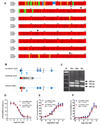A genetic determinant of the striatal dopamine response to alcohol in men
- PMID: 20479755
- PMCID: PMC2925052
- DOI: 10.1038/mp.2010.56
A genetic determinant of the striatal dopamine response to alcohol in men
Abstract
Excessive alcohol use, a major cause of morbidity and mortality, is less well understood than other addictive disorders. Dopamine release in ventral striatum is a common element of drug reward, but alcohol has an unusually complex pharmacology, and humans vary greatly in their alcohol responses. This variation is related to genetic susceptibility for alcoholism, which contributes more than half of alcoholism risk. Here, we report that a functional OPRM1 A118G polymorphism is a major determinant of striatal dopamine responses to alcohol. Social drinkers recruited based on OPRM1 genotype were challenged in separate sessions with alcohol and placebo under pharmacokinetically controlled conditions, and examined for striatal dopamine release using positron emission tomography and [(11)C]-raclopride displacement. A striatal dopamine response to alcohol was restricted to carriers of the minor 118G allele. To directly establish the causal role of OPRM1 A118G variation, we generated two humanized mouse lines, carrying the respective human sequence variant. Brain microdialysis showed a fourfold greater peak dopamine response to an alcohol challenge in h/mOPRM1-118GG than in h/mOPRM1-118AA mice. OPRM1 A118G variation is a genetic determinant of dopamine responses to alcohol, a mechanism by which it likely modulates alcohol reward.
Conflict of interest statement
None of the authors has any competing interest, financial or otherwise.
Figures



References
-
- Rehm J, Mathers C, Popova S, Thavorncharoensap M, Teerawattananon Y, Patra J. Global burden of disease and injury and economic cost attributable to alcohol use and alcohol-use disorders. The Lancet. 2009;373(9682):2223–2233. - PubMed
-
- Bouza C, Angeles M, Munoz A, Amate JM. Efficacy and safety of naltrexone and acamprosate in the treatment of alcohol dependence: a systematic review. Addiction. 2004;99(7):811–828. - PubMed
-
- Heilig M, Egli M. Pharmacological treatment of alcohol dependence: Target symptoms and target mechanisms. Pharm Therap. 2006;111(3):855–876. - PubMed
-
- Spanagel R. Alcoholism: A Systems Approach From Molecular Physiology to Addictive Behavior. Physiol Rev. 2009;89(2):649–705. - PubMed
-
- Schuckit MA. Vulnerability Factors for Alcoholism. In: Davis KL, Charney D, Coyle JT, Nemeroff C, editors. Neuropsychopharmacology: The fifth generation of progress. 41 ed. Philadelphia: Lippincott Williams & Wilkins; 2002. pp. 1399–1412.
Publication types
MeSH terms
Substances
Grants and funding
LinkOut - more resources
Full Text Sources
Other Literature Sources
Medical
Molecular Biology Databases

